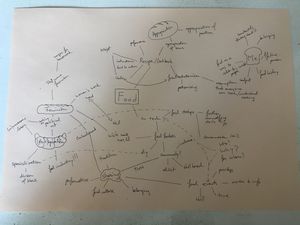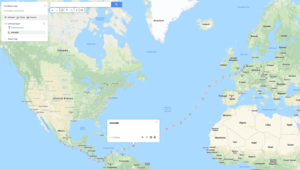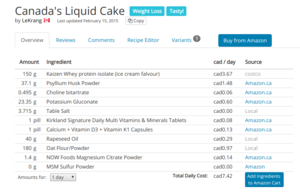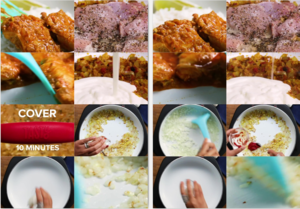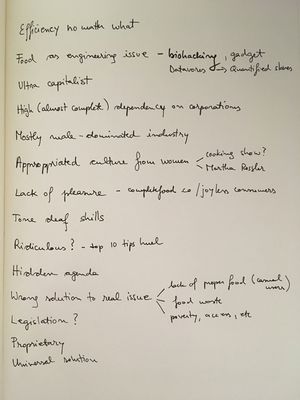User:Alice/Experiments: Difference between revisions
| (10 intermediate revisions by the same user not shown) | |||
| Line 1: | Line 1: | ||
= | =Hackpacts= | ||
===Essay on the recipe=== | |||
[[File: | Eating is always much more than eating. | ||
Rinse, peel, chop, slice. Fry, sear, roast, grill. The pieces of the algorithm are interchangeable, but only by respecting the order of the operations, repeating the steps, you will get to the same result. In every single operation hides a world of knowledge. Where we are now, it all depends on trial and error. | |||
So what makes code, algorithms, programming so similar to instructions, recipes, cooking? Or is it a stretch to compare the two? | |||
Many (programmers) have attempted to explain programming to 'the people' by imagining a computer program to function 'just like a recipe'. The assumption here is that cooking is easy, everybody likes to cook, everybody can understang cooking. What shapes can that take? | |||
In [http://www.cs4fn.org/programming/recipeprogramming.php this example], the author is quick to note that 'Programmers are the master chefs of the computing world - except the recipes they invent don't just give us a nice meal, they change the way we live.' His claim seems to be: the two are similar, but, of course, cooking is infinitely more trivial than programming, because the latter has lifechanging capacities. | |||
Others have tried to provide simplified explanations for different concepts, through the medium of a recipe. In Algorithmic Kitchen, the author tries to explain big data by using a standard format for a recipe. | |||
In the world of highly personalized nutrition, developed from medical use to a type of entrepreneurial lifestyle, the recipe has been reduced to a [https://www.completefoods.co/ spreadsheet]. In the hope that it will make life easier and more efficient, complete food enthusiasts have gathered on an online platform to share their extremely technical recipes for meal replacements, with ingredients measured down to a single gram, and a link that can take you straight to a checkout basket on Amazon. You can add tasty ingredients such as potassium chloride, grass-fed whey and choline bitartrate to your fresh batch of diy powder, ready to be mixed with water and enjoyed for every meal. | |||
===Mind map=== | |||
[[File: Mindmap.JPG|300px|Mind map]] | |||
===Exercise idea=== | |||
Write down a full day's menu from the past week. Wrote down an imaginary full day's menu from when you were back home (if from here, when you were living with parents). What has changed and what has remained the same? Why? What are the current influences over your daily menu? What would you like to change? | |||
===Workshop idea=== | |||
Take one dish that is easy and convenient to make (e.g. Guacamole). The ingredients you conveniently have on the table, which can be purchased at any shop around the city, have traveled a long way to come to you. Can we retrace the routes of this dish? Where does each ingredient come from? | |||
Steps: | |||
* Locate the provenience of each ingredient on the map, as accurately as possible (location of plantation, factory, etc) | |||
* Research/imagine the possible route - by ship, train, etc up until the Netherlands/Rotterdam/Albert Heijn/this workshop | |||
* Trace the route and export it, then turn it into a pdf | |||
* Write down the recipe including these steps | |||
* Make guac, enjoy | |||
[[File:Avocado route.png|frameless]] | |||
===Workshop idea no.2=== | |||
A prototyping into a 'diwo' distopian version of a future food menu | |||
Start with introduction on meal replacements - very individualistic, based on full efficientization of the human | |||
Overidentification - Let's consider a future in which this is the mainstream option we have, but humans are still trying to bond and create communities around it | |||
Split into groups | |||
Based on the basic nutrients that you think a human needs, create the menu for a full day/dinner that would include all/most of them + a series of basic instructions on how to cook them | |||
Now, reduce each ingredient to it's most basic nutrients. What are the quantities that you're left with? How would you mix them into something edible? | |||
Choose one meal, create a shopping list and a set of instructions. Name your new meals. | |||
At the end, join together for a potluck dinner party. | |||
===Workshop idea no. 3=== | |||
An exercise in collaborative cooking with two alternatives to a cake | |||
'''The cake and its liquid alternative''' | |||
Based on one of the Liquid Cake [https://www.completefoods.co/diy/recipes?q=liquid+cake recipes] on the diy complete foods forum, and a version with similar flavors (one that has to be baked), split into two groups. The two will receive all the necessary ingredients in the order they need to be used, and will have to document their choice of recipe and their collaborative process. How does the experience change when the 'cooking' involves crushing pills and mixing various powders? How can participants share tasks in this situation? Both groups will also be mindful of the value and role of each of the ingredients they use, and write down notes. What does the egg do for a cake? What does Choline bitartrate do for its liquid version? | |||
* Maybe add a cake mix as a third option? | |||
[[File:Liquidcake.png|frameless|right|Liquid cake recipe]] | |||
===Reimagining the visualisation of recipes=== | |||
[[File: Food_flipbook.png|300px|Flipbook]] | |||
===Issues=== | |||
Develop ideas related to each of the issues listed. | |||
[[File:Issues food.jpg|thumbnail]] | |||
Latest revision as of 14:58, 5 December 2018
Hackpacts
Essay on the recipe
Eating is always much more than eating. Rinse, peel, chop, slice. Fry, sear, roast, grill. The pieces of the algorithm are interchangeable, but only by respecting the order of the operations, repeating the steps, you will get to the same result. In every single operation hides a world of knowledge. Where we are now, it all depends on trial and error.
So what makes code, algorithms, programming so similar to instructions, recipes, cooking? Or is it a stretch to compare the two?
Many (programmers) have attempted to explain programming to 'the people' by imagining a computer program to function 'just like a recipe'. The assumption here is that cooking is easy, everybody likes to cook, everybody can understang cooking. What shapes can that take? In this example, the author is quick to note that 'Programmers are the master chefs of the computing world - except the recipes they invent don't just give us a nice meal, they change the way we live.' His claim seems to be: the two are similar, but, of course, cooking is infinitely more trivial than programming, because the latter has lifechanging capacities.
Others have tried to provide simplified explanations for different concepts, through the medium of a recipe. In Algorithmic Kitchen, the author tries to explain big data by using a standard format for a recipe.
In the world of highly personalized nutrition, developed from medical use to a type of entrepreneurial lifestyle, the recipe has been reduced to a spreadsheet. In the hope that it will make life easier and more efficient, complete food enthusiasts have gathered on an online platform to share their extremely technical recipes for meal replacements, with ingredients measured down to a single gram, and a link that can take you straight to a checkout basket on Amazon. You can add tasty ingredients such as potassium chloride, grass-fed whey and choline bitartrate to your fresh batch of diy powder, ready to be mixed with water and enjoyed for every meal.
Mind map
Exercise idea
Write down a full day's menu from the past week. Wrote down an imaginary full day's menu from when you were back home (if from here, when you were living with parents). What has changed and what has remained the same? Why? What are the current influences over your daily menu? What would you like to change?
Workshop idea
Take one dish that is easy and convenient to make (e.g. Guacamole). The ingredients you conveniently have on the table, which can be purchased at any shop around the city, have traveled a long way to come to you. Can we retrace the routes of this dish? Where does each ingredient come from?
Steps:
- Locate the provenience of each ingredient on the map, as accurately as possible (location of plantation, factory, etc)
- Research/imagine the possible route - by ship, train, etc up until the Netherlands/Rotterdam/Albert Heijn/this workshop
- Trace the route and export it, then turn it into a pdf
- Write down the recipe including these steps
- Make guac, enjoy
Workshop idea no.2
A prototyping into a 'diwo' distopian version of a future food menu
Start with introduction on meal replacements - very individualistic, based on full efficientization of the human Overidentification - Let's consider a future in which this is the mainstream option we have, but humans are still trying to bond and create communities around it
Split into groups
Based on the basic nutrients that you think a human needs, create the menu for a full day/dinner that would include all/most of them + a series of basic instructions on how to cook them
Now, reduce each ingredient to it's most basic nutrients. What are the quantities that you're left with? How would you mix them into something edible?
Choose one meal, create a shopping list and a set of instructions. Name your new meals.
At the end, join together for a potluck dinner party.
Workshop idea no. 3
An exercise in collaborative cooking with two alternatives to a cake
The cake and its liquid alternative
Based on one of the Liquid Cake recipes on the diy complete foods forum, and a version with similar flavors (one that has to be baked), split into two groups. The two will receive all the necessary ingredients in the order they need to be used, and will have to document their choice of recipe and their collaborative process. How does the experience change when the 'cooking' involves crushing pills and mixing various powders? How can participants share tasks in this situation? Both groups will also be mindful of the value and role of each of the ingredients they use, and write down notes. What does the egg do for a cake? What does Choline bitartrate do for its liquid version?
- Maybe add a cake mix as a third option?
Reimagining the visualisation of recipes
Issues
Develop ideas related to each of the issues listed.

